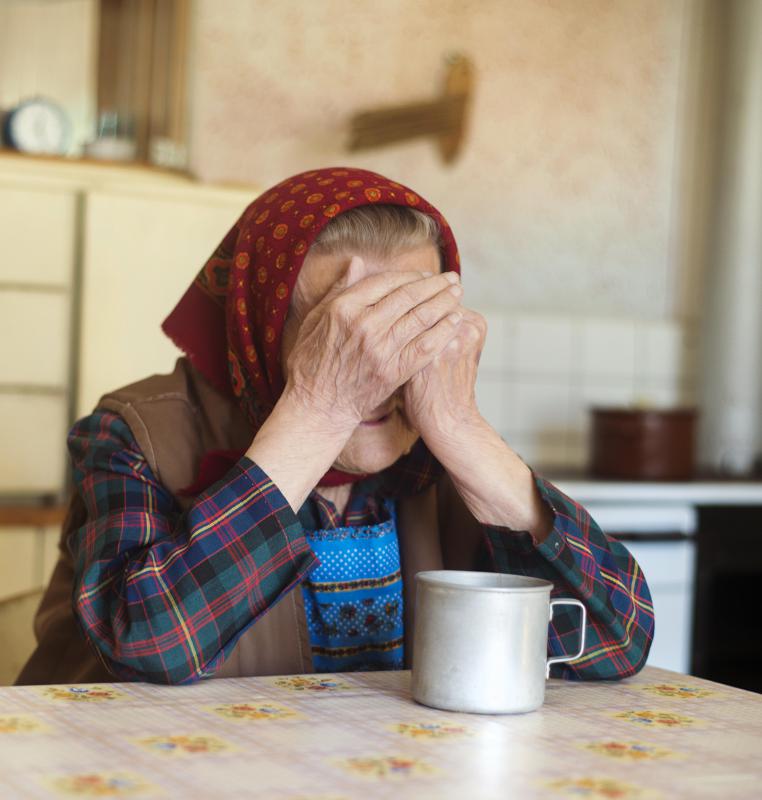At TheHealthBoard, we're committed to delivering accurate, trustworthy information. Our expert-authored content is rigorously fact-checked and sourced from credible authorities. Discover how we uphold the highest standards in providing you with reliable knowledge.
What is Chronic Pain?
Chronic pain is pain that continues long after apparent direct causes for it like illness or injury have recovered or alternately it can be defined as ongoing acute pain from conditions that are deteriorative in nature. There are numerous potential causes of both types of chronic pain and many different treatment strategies for it. These treatments attempt to reduce pain, but are imperfect, and many people with chronic pain spend years suffering before finding workable approaches or methods. For conditions that cause deterioration of the nerves, even with assistance, pain may still worsen over time, though interventions may reduce discomfort.
Doctors don’t define chronic pain by location, but by duration. If from an initial injury, the pain could continue in the injury’s location even when the body is healed. For undefined reasons, nerves continue to send pain signals to the brain, though these signals are no longer necessary. This can cause debilitation or a continual sense of suffering, depending on how often the nerves misfire.

Injury isn’t necessarily the only cause of this type of pain. Inflammatory diseases like arthritis can affect one or more joints at all times. People get migraines which, when unsuccessfully treated, result in severe headaches. Some people suffer aches and pains all over the body that are associated with conditions like depression or bipolar disorder. This pain can be just as intense and serious as discomfort caused by anything else.

Doctors vary in treatment strategies for pain and may address it by condition. Some medications will directly reduce source of certain pain. For example, there are migraine medicines that may help quickly stop some migraines. People with inflammatory conditions could use daily steroids to reduce inflammation. These medicines only work in condition-specific ways and they may not always totally address pain.

One common solution is to give opioid pain relievers for acute episodes. Unfortunately, if pain persists, they create dependence and over time they can become less effective. While there is no shame in being dependent on a legally prescribed drug to reduce serious pain, there is a problem if eventually the drug fails to work because the body demands more of it.

One drug that doesn’t seem to carry this difficulty is medical marijuana. There are many places where this drug is not available and where it may be illegal. Advocates of those with chronic pain continue to push for its legalization, or at the very least, for medical use.
There are non-drug approaches to lasting pain, too. A number of studies confirm that cognitive behavioral therapy (CBT) or other mental health support may help people change the way they perceive pain. Some people also turn to alternative therapies like acupuncture, and there have been similar studies suggesting that it may reduce pain. Ultimately, chronic pain is best treated by a combination of methods that teach long-term pain coping strategies, support acute flareups of pain, and offer other therapies, drug or alternative, that seem to benefit a patient's individual condition.
AS FEATURED ON:
AS FEATURED ON:




















Discussion Comments
I have chronic pain, mostly I feel that both ankles have been sprained, and I get cramping in my feet and calves, sometimes working into a charley horse encompassing my entire leg! I also have nerve pain- intense buzzing like bees inside my ankles and calves. I live in Colorado, and was a medical marijuana registrant until it became legal to just grow my own stuff.
With my doctor's OK, I used it along with a dosage of Lyrica, and electric stimulation (similar to but 10x stronger than a TENS treatment), which was very effective. Now that I'm needing a job, I can't use the marijuana, due to pre-employment drug testing. I can really tell the difference. I can't do many jobs anymore, and job hunting -- walking around dropping off resumes and attending job fairs -- is very difficult for me. If I use the marijuana it is very helpful and I could probably do more!
ValleyFiah: Medical marijuana is a good alternative for some people.
Disadvantages: May not work well for everyone.
Can cause alarming side effects-- marijuana is a hallucinogen.
Is expensive (most health insurance companies will not reimburse for it).
It might be worth trying, but I'm a bit concerned about you mentioning nausea and increased aching when not taking the pills? Most narcotics are addictive and you may want to check with your doctor to make sure you're not experiencing any dangerous form of withdrawal.
@ Amphibious54- I can see that valleyfiah has legitimate concerns about his or her current chronic pain management techniques, but I have to disagree with your freewheeling assumptions that there is no detrimental effect of legalizing marijuana. Marijuana legislation is irresponsible, and it is ineffective at regulating the drug. I feel for people in pain, but I don't think letting people "smoke up" is the way to treat that pain. I don't want that type of influence on my kids!
@ ValleyFiah- Your concerns about pharmaceutical opiates are real, and I believe these concerns deserve more national attention than they are getting.
Marijuana is almost as effective at relieving pain as opiates, but has far fewer side effects. This is especially true if you ingest or vaporize the herb instead of smoke it. You cannot overdose on your medication, you do not become dependent on the medication like you would an opiate, the biggest side effect is sleepiness and hunger, and the drug does far less damage to your body than many of the synthetic pharmaceuticals people ingest.
In my opinion, the only reason that marijuana is prohibited nationally is because it would have a serious economic impact on big pharma. The benefits of the plant are amazing, and the cost to society is much less. You have to remember, before prohibition, the AMA fully supported the therapeutic effects of marijuana. The plant has been legal in American history longer than it has been illegal.
Does medical marijuana work better for chronic pain relief than opiate pain medications? I am on opiate pain medications, but I want to get off them. I have become dependent on them for my back pain, but my doctor has already increased my dose twice. My second dose increase also happened faster than my first. My body's tolerance level is growing and it honestly scares me.
If I don't take my pills I feel nauseous and my whole body aches, not just my back. I live in Michigan, and I know I would qualify for medical marijuana, but I don't like the stigma that goes with it. That being said, I don't like the stigma that goes with pharmaceutical narcotics. I think i would rather be labeled a "pot Head" and be pain free than actually turn into a pill addict and be pain free. Does anyone have an opinion on what is better?
Post your comments